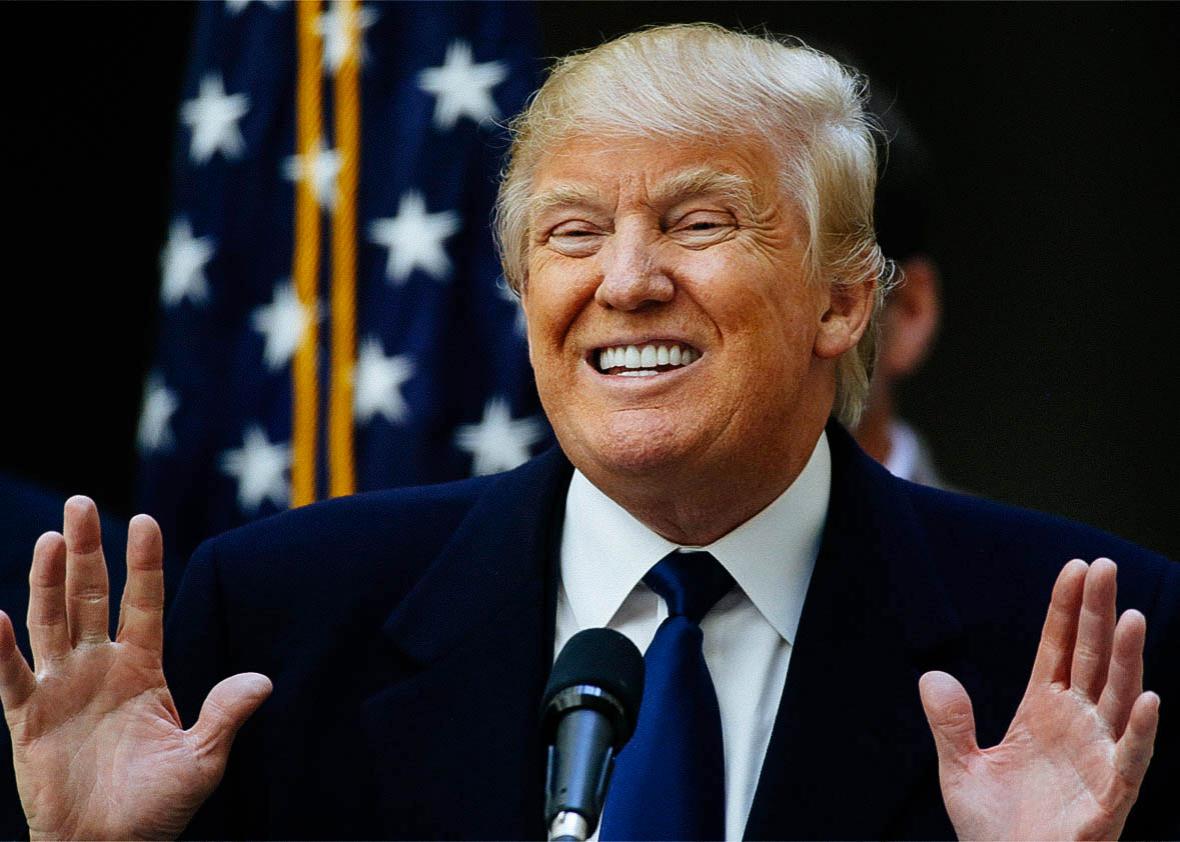This article appears in slightly different form in the Financial Times.
When my son was in the third grade, I went ice skating with his grammar school at the Wollman Rink in Central Park. On a weekday morning, the children had the place all to themselves. After a spell of skating, they took a break for hot cocoa while the ice was cleaned. But as they got ready to return, a rostrum was pushed out on to the ice. From behind it, an enormous orange-haired man in a double-breasted overcoat began boasting about how he had overcome the incompetents in city government to restore the facility in the 1980s. He seemed unaware that he was lecturing an audience of 8- and 9-year-olds. After a time, the children began to chant, “We want to skate! We want to skate!” Oblivious, Donald Trump continued his monologue.
Members of the Republican Party are now facing a version of this same problem: How do we get this megalomaniac off the ice? Trump suffered his worst defeat on Tuesday when he lost the Wisconsin primary to Ted Cruz by 13 points. This capped off seven days that began with Trump’s campaign manager being charged with battery for manhandling a female reporter at one of his events in Florida; continued with his saying that “there has to be some form of punishment” for women who have abortions; and culminated in his refusal to forswear the use of nuclear weapons in Europe or the Middle East.
Pundits who underestimated Trump’s potential last autumn have been hesitant to come out and state what has now become apparent: He is probably not going to be the Republican nominee after all. Even if he wins the New York primary next week, and others in the Northeast the following week, it is unlikely that he can gain the 1,237 delegates he needs to secure the nomination on the first ballot at the Republican convention. And if he does not win on the first ballot, Trump won’t win it at all—because the GOP doesn’t want to nominate someone who is certain to be clobbered by Hillary Clinton and to drag the Republicans down to defeat in state and congressional races. It turns out there is no convention rule requiring the party to commit suicide simply to serve Trump’s egomania.
Trump’s reaction to the Republican Party’s late scramble to reject him is much like the one he gave to my son’s schoolmates: Who cares what you want? As the Wisconsin results came in, he was apparently in too deep a sulk, or too purple a rage, to deliver even a pro forma concession speech. Instead, his campaign released an unhinged statement about “Lyin’ Ted Cruz,” calling him “worse than a puppet” and a “Trojan horse” for the party bosses who were “attempting to steal the nomination from Mr. Trump.” Attempting to steal the nomination is despot-speak for daring to challenge him in an election.
Trump is now a wounded animal, and as hunters know, these can be the most dangerous kind. The Republican Party will have to use care in depriving him of a prize that he thinks belongs to him by rights. The best-case scenario for the GOP would be Trump facing facts and backing out of the primary before the Cleveland convention in mid-July.
Narcissists like Trump cannot tolerate defeat, because their self-worth is bound up in the idea that they are winners. “My life is about victories,” he told the journalists Bob Woodward and Robert Costa in a jaw-dropping interview. “When I do something, I win.” Faced with defeat he may prefer to walk away, declaring the grapes sour and the game rigged while preserving his belief in himself as someone who never loses. In some ways, an establishment conspiracy to deny him the nomination gives him the exit strategy he sorely needs.
Even if he goes without a fight, Trump may have changed the GOP forever by exposing the vast gap between white working-class Republican voters and the party leadership. The legacy of his campaign may be a split into two parties, or at least two distinct factions—one nationalistic, nativist, and antitrade; the other internationalist, pro-immigration, and pro-corporate.
More immediately, Republicans face a possible Samson scenario in which Trump tears the party down around him. This is the course he has implicitly threatened by warning of riots if he arrives in Cleveland with the most delegates and is denied the nomination. It would not take much for him to instigate violence at the convention. The rabble that he has roused seems to crave it as a forbidden form of political expression. A rebellion will be harder to pull off if the party comes together around Cruz on a second ballot, as opposed to a backroom deal to nominate House Speaker Paul Ryan or another candidate who didn’t run in the primaries.
The only thing worse for the GOP than chaos in Cleveland would be a third-party campaign by a vindictive Trump. If he waits until the convention, it would be hard for him to secure ballot access as an independent in several key states. But even as a write-in candidate, he would draw significant votes from the Republican nominee, ensuring a Democratic victory. If rejection propels Trump to play spoiler for his party, he has the means to do so.
